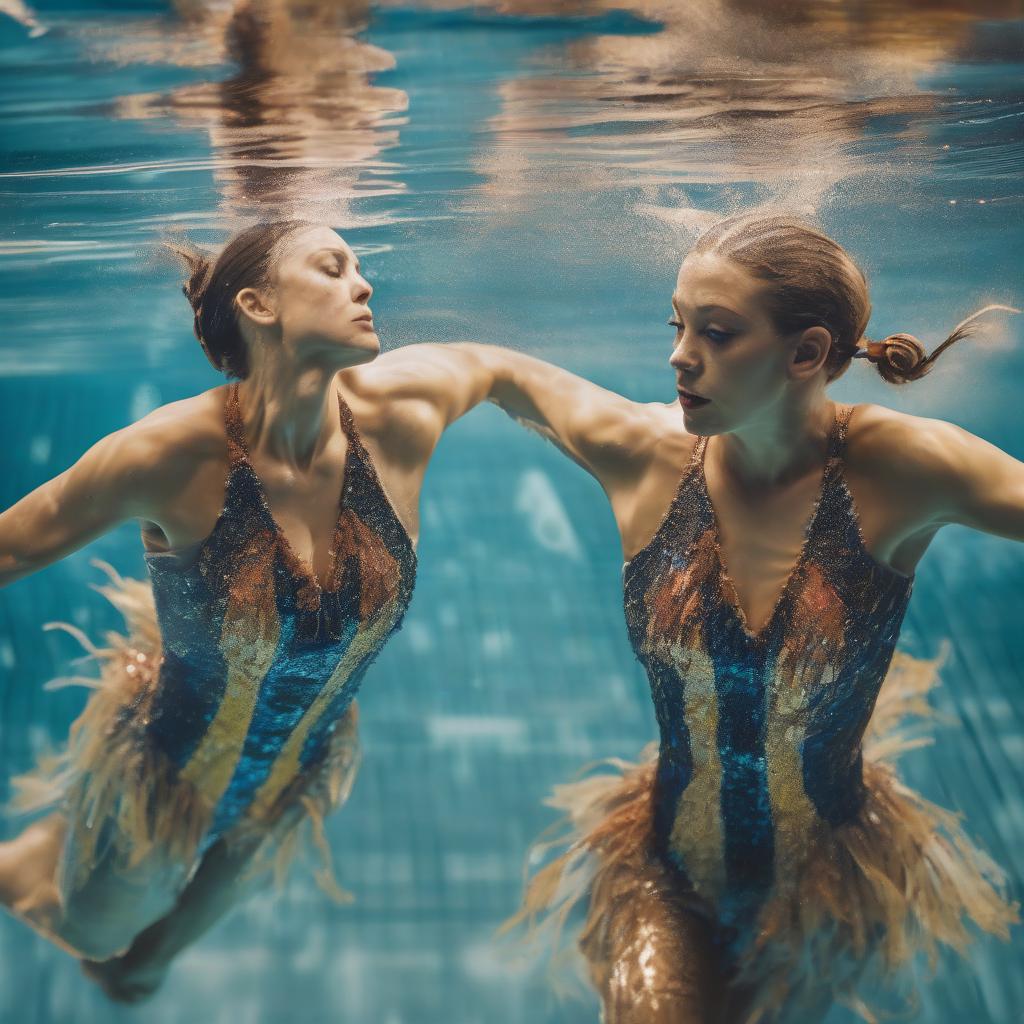Aquatics is like this vast, thrilling universe. Not just limited to swimming, though that’s a huge part of it. You’ve got water polo, synchronized swimming, diving, and even the more extreme stuff like underwater rugby. Simply put, aquatics covers a whole bunch of activities and sports that take place in water. Whether it’s in a pool, a lake, or the ocean, there’s something fascinating about this realm.
The Many Facets of Aquatics
When talking about aquatics, it’s easy to think only of swimming laps or maybe diving. But there’s a lot more. Let’s dive into some of these areas.
Swimming
Swimming is probably the most popular. For sure. It’s accessible, great for fitness, and has a rich competitive scene. From freestyle to backstroke, the thrill of racing or just leisurely paddling around is universal. Plus, it’s a life skill. I mean, who doesn’t want to be able to swim?
Water Polo
Now, water polo. It’s like soccer, but in water. Insane levels of energy. Players must swim constantly, treading water the whole time. If you’ve ever tried to tread water for more than a few minutes, you’ll know how tough this is. The game is intense, demanding quick reflexes, teamwork, and strategy.
Synchronized Swimming
Ever watched synchronized swimming? It’s art in water. Athletes perform routines of elaborate moves in the pool, all choreographed to music. It looks graceful, almost easy. But the strength and stamina required are immense. Holding your breath, staying in sync, and making it all look beautiful is no small feat. It’s like dance, gymnastics, and swimming all rolled into one.
Diving
Diving is another fascinating aquatic sport. The precision, the height, the splashless entry—divers make it all look effortless. Divers leap from springboards or platforms, twisting and somersaulting before hitting the water. As a spectator, it’s a mix of elegance and suspense every time they jump.
Benefits of Aquatics
Why dive into aquatics? Besides the obvious fun, there are some serious perks. Fitness tops the list. Aquatics engage the whole body, offering a fantastic workout. Swimming laps or playing water polo increases cardiovascular health, builds endurance, and strengthens muscles without putting stress on joints. Perfect for those who want a low-impact exercise.
Mental Well-being
And then, there’s the mental health aspect. Being in water can be incredibly calming. The repetitive motions of swimming, the focus required in diving, or just floating peacefully—it’s all like therapy. Water has this unique ability to soothe, to help clear the mind.
Social and Competitive Aspects
Joining an aquatic team or club is a great way to meet people. The camaraderie, the shared challenges, the victories—it builds friendships. Check out this resource about forming teams which can give you more insight into the community and competitive elements of aquatics.
Exploring Lesser-Known Aquatic Sports
You’ve heard of the big ones, but what about the lesser-known aquatic sports?
Underwater Hockey and Rugby
Sounds wild, right? Underwater hockey and rugby are played on the pool floor. Players wear snorkels, masks, and fins, passing a puck or ball around. It’s fast, strategic, and quite a test of lung capacity.
Fin Swimming
Then there’s fin swimming. It’s kind of like traditional swimming but faster because of the fins. Think of it like track and field but in the water. The races are short, long, and everything in between, with competitors zipping through the water at impressive speeds.
| Sport | Main Equipment | Key Skills |
|---|---|---|
| Underwater Hockey | Mask, Snorkel, Fins, Puck | Breath Control, Agility |
| Underwater Rugby | Mask, Snorkel, Fins, Ball | Teamwork, Strategy |
| Fin Swimming | Fins, Monofin | Speed, Endurance |
Global Reach and Influence
Globally, aquatics has massive appeal. Competitions like the Olympics showcase these sports to huge audiences. People everywhere enjoy aquatic sports for leisure, fitness, or competition. This Wikipedia page and this Encyclopaedia Britannica article offer more insights into the history and influence of aquatics worldwide.
Getting Started with Aquatics
Finding Your Sport
Curious about trying aquatics? First, decide which sport piques your interest. Maybe you’ll start with swimming. Or perhaps the thrill of diving catches your eye. There’s something for everyone.
Join a Club or Class
After picking a sport, look for local clubs or classes. They’ll offer guidance and help you develop skills. Plus, joining a club means you’ll be part of a community, which can be motivating and fun.
FAQs About Aquatics
- What’s the best age to start swimming lessons?
Honestly, any age is great. Kids as young as six months can begin. But adults, it’s never too late!
- How do I overcome my fear of water?
Take it slow and start with small steps. Consider lessons with patient instructors.
- Are aquatics sports safe?
Yes, with proper supervision and safety measures. Always follow guidelines and listen to instructors.
- Do I need to be a strong swimmer to try water polo?
It’s helpful, but you can learn as you go. Many clubs offer beginner-friendly sessions.
- Can aquatics help in losing weight?
Absolutely! It’s a great workout that burns calories and builds muscle.
So, that’s a glimpse into the dynamic world of aquatics. Whether you want to swim for fun, compete, or find a new way to work out, there’s something refreshing about taking the plunge. Dive in and explore the possibilities!

